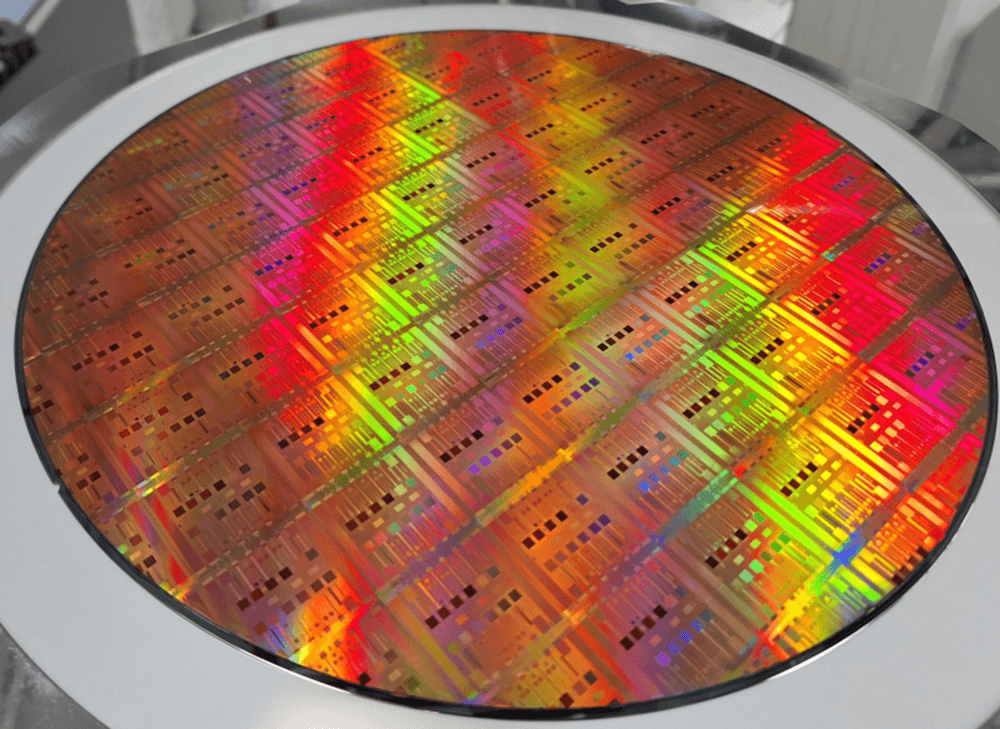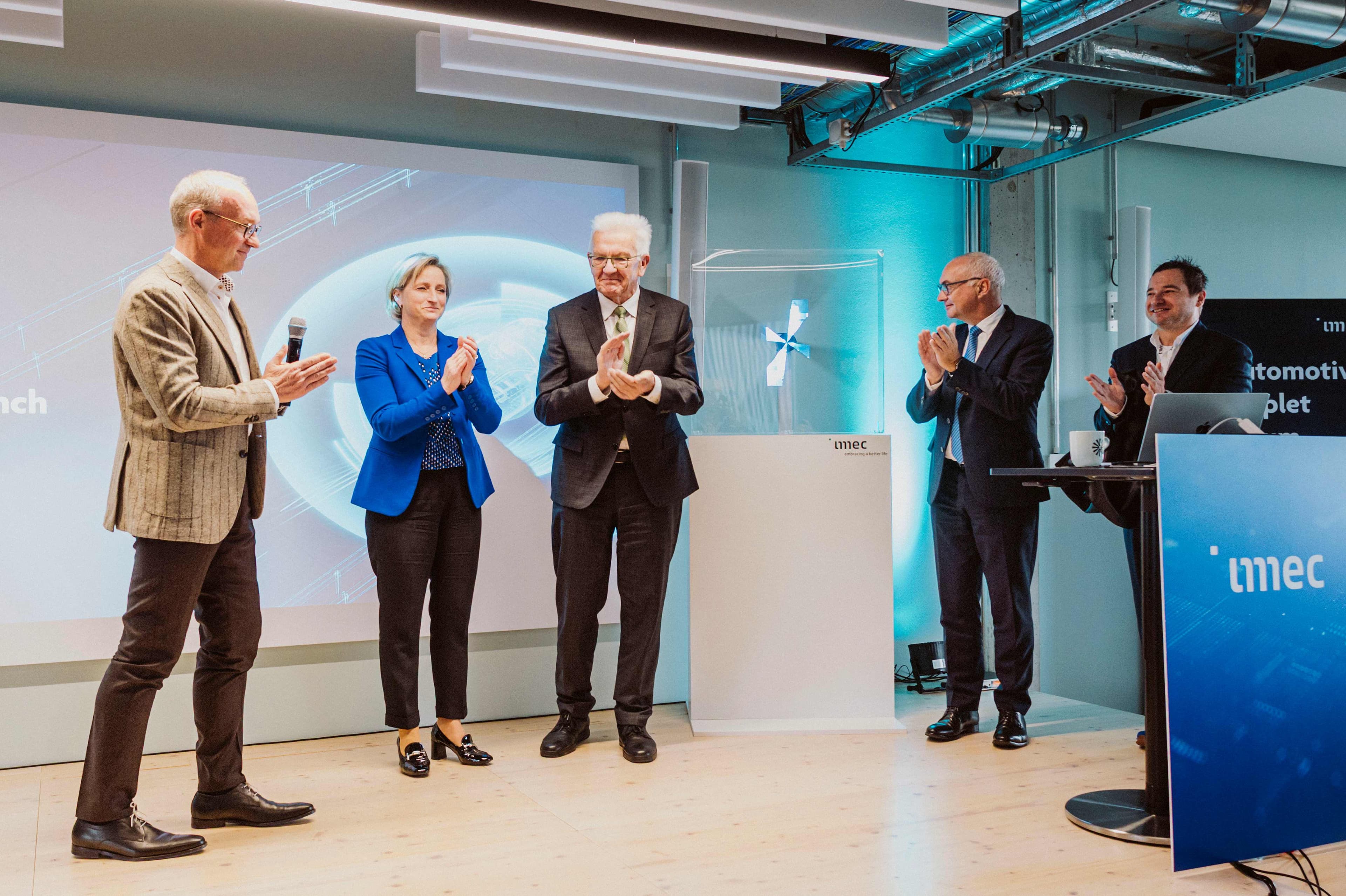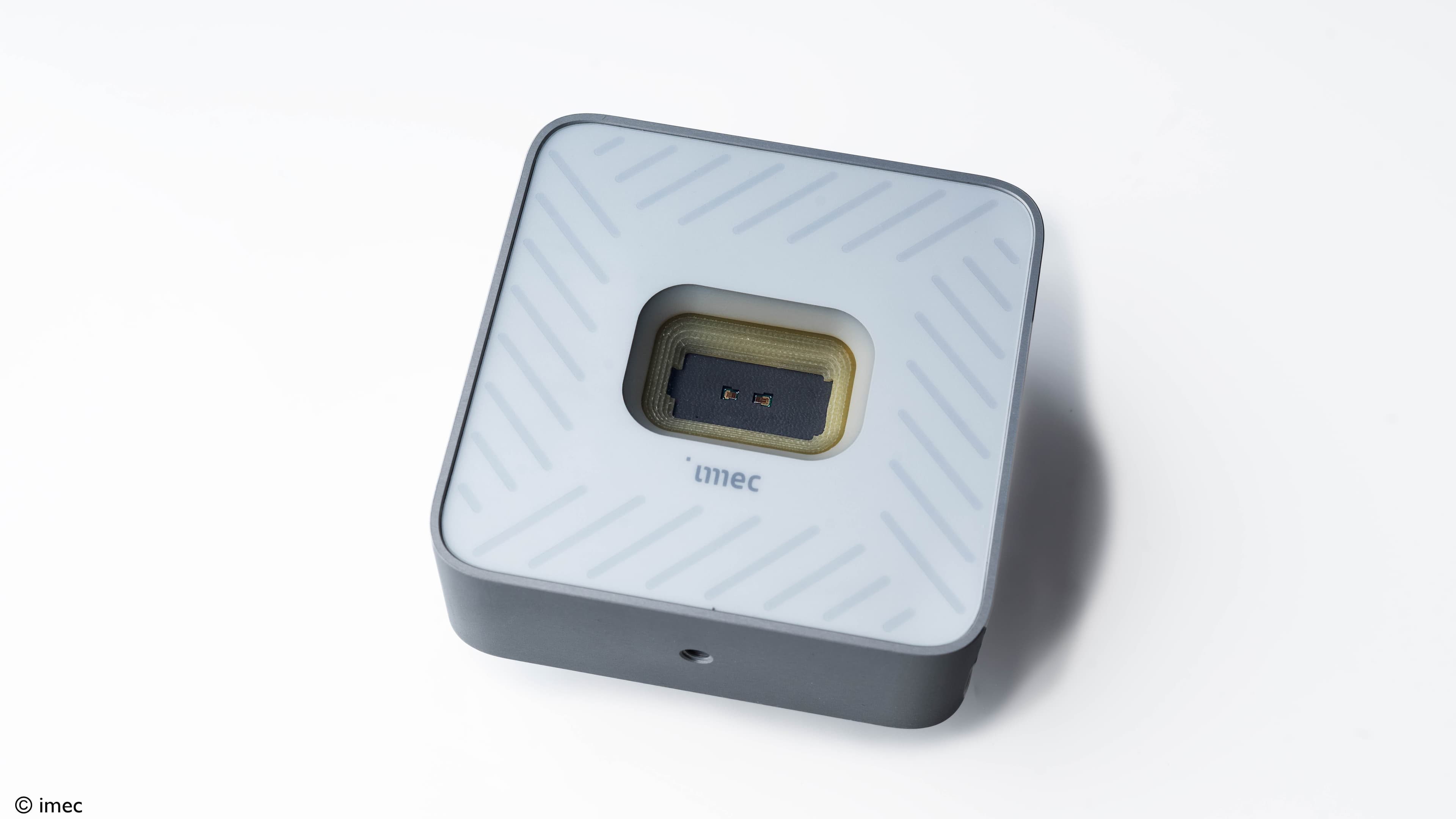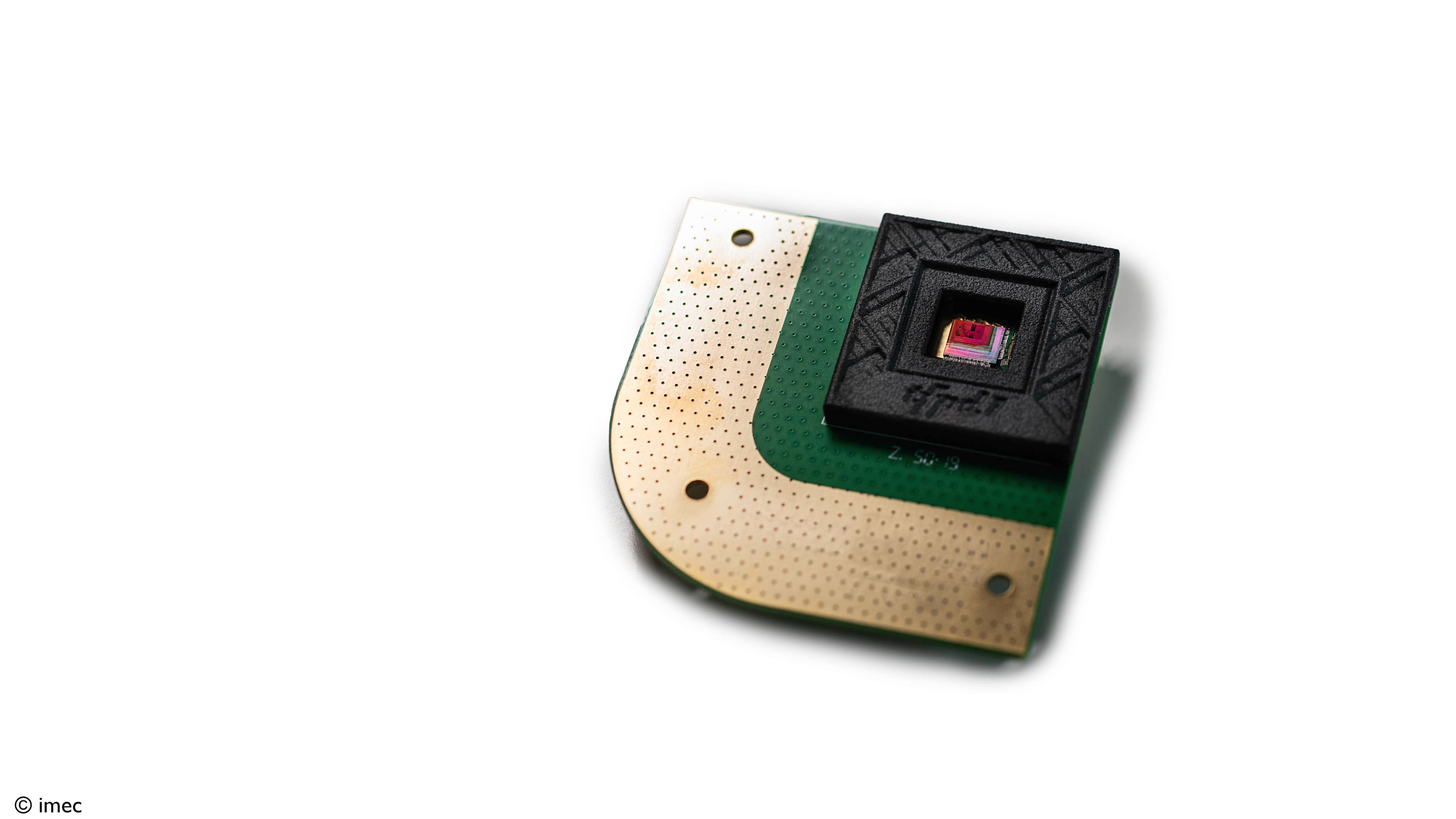
Automotive semiconductor technologies
Smarter, safer, and more affordable mobility anytime, anywhere.
The automotive industry is undergoing a fundamental transformation, shifting toward safe autonomous driving and enhanced in-cabin experiences.
This evolution places increasing demands on advanced automotive semiconductor technology. And makes the automotive industry’s early engagement and alignment with the semiconductor roadmap essential for future mobility.
To support the automotive industry along this paradigm shift, imec develops advanced automotive chiplet integration, chiplet-based high-performance compute architectures, and next-generation automotive semiconductor technologies, enabling smarter, safer and more affordable mobility for everyone.
Interested in shaping the future of mobility? Reach out to collaborate with us.

Chiplet-based compute for automotive applications
As advanced driver-assistance systems (ADAS), autonomous capabilities, and immersive infotainment gain ground, the demand for computing power increases. But dmeeting these needs, while maintaining safety, reliability, and cost-efficiency, is increasingly challenging with traditional monolithic chip designs.
Chiplets offer a smarter path forward.
By modularizing functionality into reusable, interoperable chiplets, manufacturers can build tailored, high-performance compute platforms that are scalable, flexible, and cost-effective.
Through its Automotive Chiplet Program (ACP), imec brings together a global, pre-competitive research consortium focused on defining, developing, and validating chiplet architectures for high-performance automotive computing.
- Unlocking compute for autonomous driving (AD) and advanced driver-assistance systems (ADAS).
- Enabling OEM differentiation and platform scaling.
- Supporting cost-effective and reliable automotive platforms.
- Strengthening supply chain resilience across the semiconductor ecosystem.
As part of this effort, imec has also established the Advanced Chip Design Accelerator (ACDA) in Heilbronn, Germany, located at the Innovation Park Artificial Intelligence (IPAI).
Supported by the Ministry of Economic Affairs, Labor, and Tourism of Baden-Württemberg, ACDA expands imec’s chiplet research and validation capabilities through the development of automotive chiplet prototypes, multi-vendor integration and validation, and focused research on compute architectures tailored to automotive-grade requirements.
Interested in imec’s Automotive Chiplet Program (ACP)? Reach out to learn more.
Sensing smarter, seeing more
Automotive sensing demands are evolving rapidly to support autonomous vehicles, ADAS, and next-generation in-cabin experiences. Imec’s automotive sensing research focuses on extending perception, enhancing safety, and enabling new use cases through:
- Solid-state FMCW lidar and silicon photonics for compact, low-cost, high-precision depth sensing
- Coherent high-resolution radar operating at 140 GHz for expanded perception and better resolution
- Optical fiber technologies to support large coherent radar systems and advanced in-vehicle networking
- Speckle-based sensing for medical-grade health monitoring applications
- Camera technologies beyond the visible spectrum for improved detection in low-visibility environments
To accelerate development and reduce costs, imec’s SENSAI program uses a virtual validation approach. By combining physics-based modeling, experimental sensor data, and artificial intelligence, SENSAI enables early-stage simulation of novel sensor technologies, such as quantum dot SWIR cameras and on-chip lidar, before hardware is built.
OEMs, Tier-1s, and Tier-2s can use SENSAI’s digital twin models to assess system-level improvements, optimize sensor fusion strategies, and shape the direction of future sensor architectures.
Collaborate with imec's sensing experts to push the boundaries of automotive perception. Get in touch today.

Shaping the future of automotive semiconductors
The power of chiplets can be amplified by standardization across the industry, as this will open up a chiplet marketplace from which automotive compute systems can be brought to market more quickly and at a lower cost.
Our Automotive Chiplet Forum (ACF) brings together key players in the ecosystem that drive the development and adoption of automotive chiplets. This collaboration is key to addressing the stringent quality and reliability requirements of the automotive industry.
Imec’s ACF is held regularly throughout the year. Get in touch to join the conversation and help define the future of automotive compute.
Collaborate with us
At imec, we believe innovation moves faster through collaboration. Whether you're interested in joint research, co-developing technologies, or shaping the future of automotive semiconductors, we invite partners from all across the ecosystem to join us.












